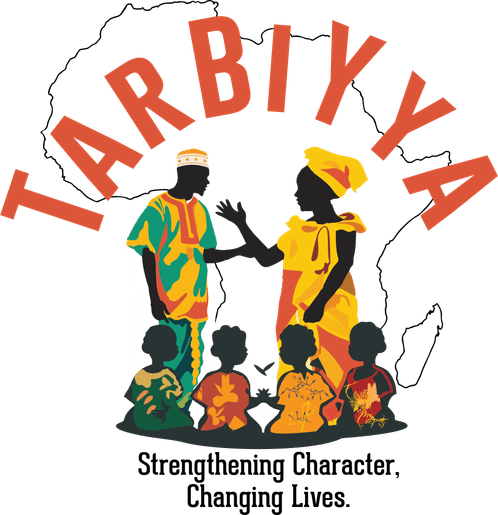Effective Education is Rooted in
Culture
Children learn best when their culture is reflected in education. Culture should be integrated into the teaching methods, learning materials, and the learning environment.
A Yoruba wordplay says, Ohun tí à ñ wá lo Sokoto, ó wà lˈàpò sòkòtò, meaning “What one is travelling to Sokoto to look for is inside the pocket of one’s pair of trousers (sòkòtò)”
There are many valuable indigenous learning activities within the cultures of Nigeria that should be integrated into education for young children. Indigenous practices nurture holistic development and enable children to be successful both within their culture and in the global society. Adopting elements of traditional education into modern education is an important strategy for improving the quality of early childhood education in Nigeria.
In Nigeria, traditional education focused mainly on developing children’s character. In developing Tarbiyya, we first researched effective cultural practices for teaching character, and then adapted them into a curriculum to be used in a modern early childhood programme. Tarbiyya includes traditional stories, songs, games, and handcrafts to teach character.
Development in the Early Years is
Holistic
Every domain of development is important: cognitive, physical, social, character, and spiritual. Growth in one area positively influences growth in the other domains. Neglect of one domain can negatively impact the others, especially in the long-term. Effective education for young children includes teaching and learning for all domains of development.
Character Can be
Taught
Character is behaviour that reflects good morals and ethics. Character is both “caught” as children observe the character of the important adults in their lives, including parents, teachers, and other family members. Character can also be “taught” through direct instruction. Character education includes learning activities that helps pupils develop positive personal character strengths.
The Tarbiyya curriculum provides learning activities that help children learn important character strengths, such as perseverance, hope, and joy. It teaches children what these character strengths are, why they are important, and how to strengthen their character.
Research has found that effective character education not only improves pupils’ character, but also promotes academic success. Ultimately, children with positive character helps society to flourish.
Children learn best from
Professional Teachers
Young children learn and develop best when they are taught by professional teachers who are trained in early childhood education. This training should include knowledge of child development and skills to teach using developmentally appropriate practice (DAP). Developmentally appropriate practice means that for young children to effectively learn, the teaching methods and curriculum must match their developmental level and the unique ways that they learn. Children taught by professionally trained teachers have higher academic achievement, better language skills, and more advanced holistic development. Learn more about developmentally appropriate practice here.
